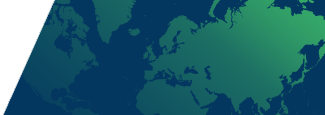

Senegal
Synthesis
major macro economic indicators
| 2021 | 2022 | 2023 (e) | 2024 (f) | |
|---|---|---|---|---|
| GDP growth (%) | 6,5 | 4,0 | 4,0 | 7.0 |
| Inflation (yearly average, %) | 2,2 | 9.7 | 6,5 | 3,5 |
| Budget balance (% GDP) | -6.3 | -6.6 | -5.0 | -4.0 |
| Current account balance (% GDP) | -11.2 | -19.9 | -14.5 | -9.0 |
| Public debt (% GDP) | 73.3 | 76.0 | 80.0 | 72.5 |
(e): Estimate (f): Forecast *Grants included
STRENGTHS
- Relatively diversified economy and offshore hydrocarbon deposits due to open in 2024
- Senegal Emergent Investment Plan (2014-2035) effectively targeting structural growth, supported by tax revenues equivalent to nearly 20% of GDP and by international donors
- Membership of the West African Monetary Union (UEMOA), bringing relative monetary stability
- Reforms improving the business climate
- Creation of investment and savings funds to collect hydrocarbon revenues
- Member of EITI since 2013 (International Extractive Industries Transparency Initiative)
- Democratic experience despite sometimes problematic practices
WEAKNESSES
- Vulnerable to climatic hazards and fluctuations in raw material prices (peanuts, cotton, fish, gold, phosphoric acid)
- Importer of food and refined petroleum products: large current account deficit
- Jihadist threat on the Southeast border
- High youth and graduate unemployment, leading young people to emigrate, resulting in talent shortages and social unrest
- Deficient justice system and procurement often under influence
- The traditional political class is disconnected from youth, even though 75% of the population is under 35
RISK ASSESSMENT
Growth rebound subject to the launch of hydrocarbons
Local socio-political unrest and political and security tensions in the vicinity altered consumption and investment, affecting the manufacturing (textiles, agri-food), agricultural (fertilizer and transport prices), and retail and hotel/restaurant sectors. As a result, economic growth was limited in 2023. It is set to leap ahead in 2024, thanks to hydrocarbons. The country is counting on the launch of two offshore fields, one gas and one oil, to boost production, exports, investment, and tax revenues. It is hoping for a trickle-down effect through the economy, via multiplier effects and thanks to laws enacted since 2019, favoring local content and framing revenue management. However, the launch dates for these two fields remain uncertain, as they have been postponed several times. The Grand Tortue Ahmeyim gas project, shared with Mauritania and piloted by BP and Kosmos, is scheduled to start production in the third quarter of 2024. The first phase will produce around 2.5 million tonnes of LNG per year, mainly for Europe, and 5 million tonnes in the second phase. The Sangomar offshore oil and gas field, operated by Woodside, is targeting a launch in mid-2024, with daily production of 100,000 barrels of oil per day. In addition, in January 2024, the Turkish company Aksa Energy began work on the development of a 255MW gas-fired power plant and pipeline in Saint-Louis, in the north-west of the country. Budgeted at USD 475 million, the facility is scheduled to be operational in 2026, and will use only local natural gas. Transportation infrastructure work will also support construction, such as the development of the country's first deep-water port at Ndayane, south of Dakar, operational in 2026, and the continuation of the regional airport modernization program (PRAS). To develop new projects, the Plan Sénégal Emergent has been calling on the private sector and multilateral and bilateral financing since 2014. Private consumption will benefit from gradual disinflation, helped by lower food prices globally, despite the continuing Indian embargo (at least until the elections there) on its rice exports, the appreciation of the CFA franc against the dollar and monetary tightening. The BCEAO (Banque Centrale des Etats de l'Afrique de l'Ouest) raised its key rate by a further 25 basis points in December 2023 to 3.5%, thus reducing the negative interest rate differential with the ECB. In line with the latter's policy, and in the face of inflation approaching the 3% target, the BCEAO is set to start cutting rates in 2024.
Twin deficits eased by fiscal consolidation and hydrocarbons
In 2024, fiscal consolidation will continue, enabling the public deficit to maintain its downward trajectory. This policy is framed by the IMF program (2023-2026) financed by the Extended Fund Facility and the Extended Credit Facility (USD 1.5 billion between them), as well as a Resilience and Sustainability Facility (USD 327 million). The government will continue to implement structural reforms designed to broaden its tax base. The 2024 budget calls for the abolition of the suspension of taxes and customs duties adopted in 2023 to mitigate the rising cost of living, and for the reintroduction of the smartphone tax. In addition, tax exemptions are set to decrease, notably on VAT, and taxes on alcohol and tobacco will increase. Added to this will be reforms to improve revenue collection, such as digitalization and tighter controls. From 2025 onwards, the government should benefit from a rise in revenues, linked to the start of gas and oil production, which should account for 1% of GDP. It has also announced a reduction in non-targeted energy subsidies, limiting them to 1% of GDP, to curb spending, which is heavily burdened by public-sector salaries (7% of GDP) and debt interest (2.7% of GDP and 10% of revenues). The government will finance its deficit mainly through external borrowing (75% of public debt is external, of which 60% is multilateral or bilateral and 26% bond), mainly with the IMF and the World Bank in the form of concessional project loans (1.2% of GDP). It will also benefit from overfinancing in 2023, which increased the debt burden. In 2024, the debt burden will decline thanks to strong economic growth and a lower primary deficit (i.e. excluding interest). As a result, debt sustainability will remain at moderate risk, according to the IMF.
The large current account deficit will narrow in 2024 with the start of gas and oil exports, whose revenues will be sustained by high prices. This will improve the trade balance, which is in deficit due to high food imports (cereals), and imports linked to energy and transport infrastructure projects, and refined petroleum products (due to the lack of refining capacity). The services deficit will narrow slightly thanks to growth in tourism (7% of GDP), but the decline will be limited by the increased use of foreign services for hydrocarbon exploitation. The primary deficit will widen with the increased repatriation of profits linked to the start-up of offshore oil and gas operations and the payment of interest on debt. However, this will be more than offset by the substantial surplus in secondary revenues, as the country benefits from large remittances from its diaspora (around 9.5% of GDP). The deficit will be financed by FDI, project loans and IMF program loans.
2024: A leap into the unknown
In a televised speech on 3 February 2024, President Macky Sall announced the sine die postponement of the presidential election scheduled for 25 February, citing a risk of unrest and a conflict between the National Assembly and the Constitutional Council, the latter being accused of failing to select candidates. The presidential announcement, a few hours before the launch of the election campaign, sparked off clashes in the capital, while part of the opposition denounced a constitutional coup. A postponement to 15 December 2024, as well as the extension of the presidential term beyond 2 April, were validated by 105 votes in favour and one against in the National Assembly, where the presidential coalition holds only a single majority vote. Prior to the vote, opposition deputies were evacuated by the gendarmerie. Discontent among urban youth, often unemployed, had already flared with the successive arrests of the main opposition figure, Ousmane Sonko, and the dissolution of his PASTEF party. During particularly large-scale demonstrations in June-July 2023, notably in Dakar and Zinguinchor, where Sonko is mayor, violent clashes with police resulted in dozens of deaths and looting. In January 2024, the Constitutional Council declared ineligible Ousmane Sonko and another opponent, Karim Wade, son of former president Abdoulaye Wade, whose candidacy was deemed ineligible due to his dual French-Senegalese nationality. Current Prime Minister Amadou Ba, a member of the Alliance pour la République (Alliance for the Republic) nominated by the ruling coalition (Benno Bokk Yakaar) to succeed outgoing President Macky Sall, was expected to win against a weakened and divided opposition (19 candidates). But according to the polls, his victory was not assured, particularly against Sonko's replacement, Bassirou Diomaye Faye, number two of the former Pastef. 2024 therefore looks like a leap into the unknown.
Inequalities, high unemployment (20%) and the difficulties encountered in certain sectors, such as fishing, will persist. Indeed, the agreements signed with the EU and Asia to intensify this activity have hurt local fishermen. Illegal emigration to Europe is intensifying: from January to November 2023, some 32,000 Senegalese arrived in Spain (Canary Islands), 40% more than in the same period in 2022.
The country maintains close ties with the US and EU countries, particularly France, maintaining economic and military cooperation, while Islamist groups from Mali loom on its southeastern border. At the same time, Senegal continues to diversify its alliances with China, Turkey, and the Gulf States, with the aim to attract new investment. The country is participating in the "Korean Rice Belt" project with South Korea and seven other African countries, with the aim of reducing rice imports and moving towards self-sufficiency.
Last updated: February 2024


